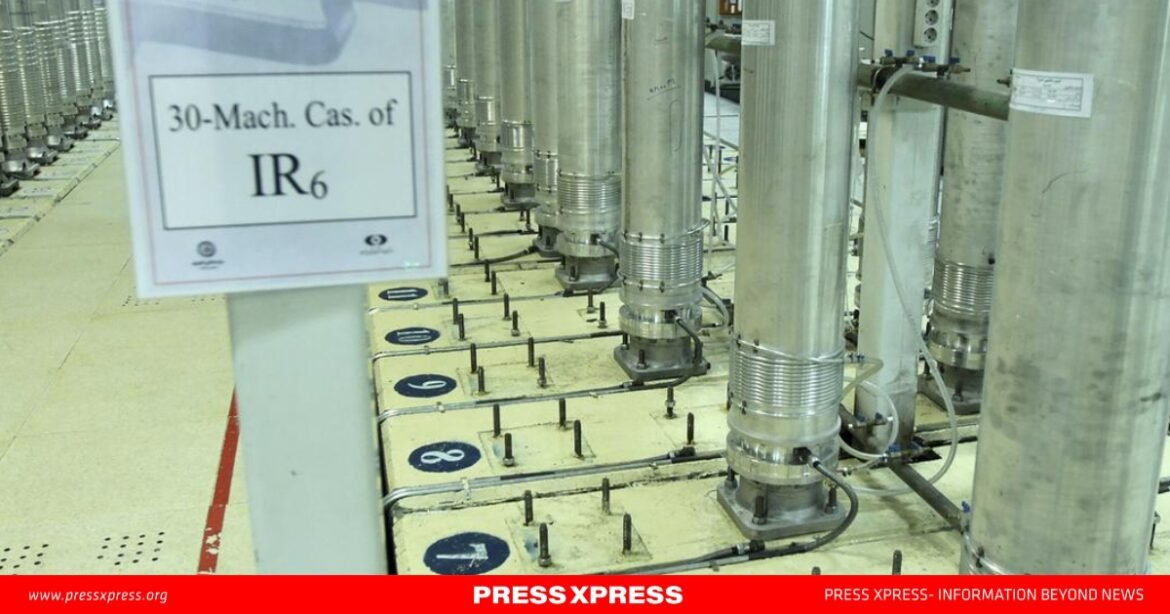For the first time, a senior Iranian official has publicly acknowledged that Israel supplied centrifuge platforms embedded with explosives to Iran’s nuclear enrichment program. The revelation underscores the complexity of sabotage efforts targeting Iran and sheds light on clandestine operations carried out by Israel.
Mohammad Javad Zarif, a former foreign minister and current vice president for strategic affairs under reformist President Masoud Pezeshkian, made the disclosure during an interview. Zarif’s comments seemed directed at addressing public frustration over the government’s struggles against Western sanctions and covert attacks on its nuclear program. He also confirmed details of a 2021 Israeli attack on the Natanz nuclear enrichment facility, long speculated but not previously acknowledged by Iranian officials.
The timing of this revelation is significant, as Iran continues to face threats from Israel amid ongoing regional tensions. During the recent Israel-Hamas conflict, Israel reportedly struck Iranian targets twice, heightening concerns over potential direct attacks on Iran’s nuclear facilities. This comes as President-elect Donald Trump prepares to re-enter the White House.
Explosives Hidden in Centrifuge Platforms
Zarif shared the details in an interview with a media outlet linked to the Institute for the Compilation and Publication of Imam Khomeini’s Works, a government-funded organization. Reformist politicians like Zarif often turn to alternative platforms to reach the public, given the dominance of hardline factions over state-controlled media.
He revealed that Israel’s Mossad intelligence agency exploited Iran’s reliance on middlemen for equipment purchases due to sanctions. “This is part of the damage of sanctions, that you are forced to receive purchases through multiple dealers instead of buying directly from a factory,” Zarif explained. “If the Zionist regime can infiltrate one of the dealers, then it can do anything and install anything.”
Zarif cited the Atomic Energy Organization of Iran as an example, noting that a platform for centrifuges procured through intermediaries had been rigged with explosives by Israeli agents. While Zarif refrained from providing further specifics, his comments offered a rare glimpse into the depth of Mossad’s infiltration of Iran’s nuclear program.
Previous Attacks on Iran’s Nuclear Facilities
This admission comes on the heels of a series of sabotage incidents targeting Iran’s nuclear infrastructure. In July 2020, an explosion devastated Natanz’s advanced centrifuge assembly plant, and in April 2021, another blast damaged an underground enrichment hall at the same facility. Israel has been widely blamed for both incidents.
In a 2021 interview, outgoing Mossad chief Yossi Cohen all but confirmed Israel’s involvement, noting that agents had ensured the delivery of a “marble foundation” embedded with explosives for Iran’s centrifuge platforms. These attacks occurred under then-Prime Minister Benjamin Netanyahu, who has overseen Israel’s response to ongoing threats from Iran and its allies.
Rising Concerns Over Iran’s Nuclear Program
The latest revelations have reignited concerns over Iran’s nuclear ambitions. Since the U.S. unilaterally withdrew from the 2015 nuclear agreement under Trump in 2018, Iran has exceeded the deal’s restrictions, enriching uranium closer to weapons-grade levels and amassing a larger stockpile.
Despite Iranian leaders insisting their nuclear program is peaceful, they have increasingly hinted at pursuing atomic weapons. Reformist President Pezeshkian, in a recent interview with NBC News, expressed willingness to negotiate but criticized the West for failing to honor past commitments. “We upheld all the commitments we had to,” Pezeshkian said. “But it was the other party that did not live up to its promises.”
Potential for Escalation
Israel, along with both President Joe Biden and Donald Trump, has made it clear that Iran will not be allowed to develop a nuclear weapon. This stance raises the possibility of a preemptive Israeli strike, similar to past actions against nuclear facilities in Iraq and Syria. President Pezeshkian, while expressing a preference for diplomacy, warned: “We do not fear war, but we don’t seek it.”
As international mediators work toward a ceasefire in the Israel-Hamas conflict, the focus may soon shift to Iran’s nuclear activities, setting the stage for potential confrontation in an already volatile region.


